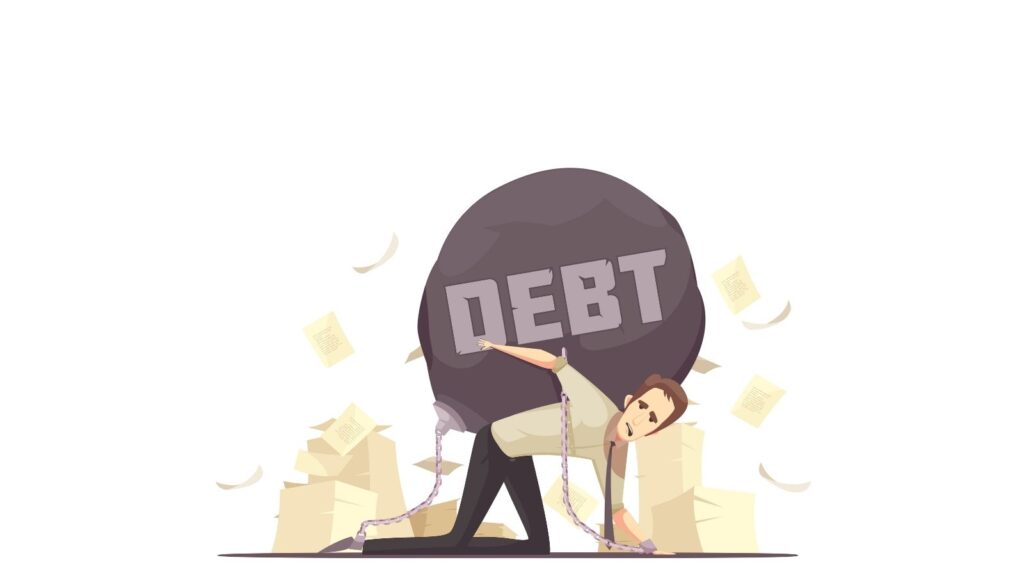What do many people do when they save money? They release something they prefer today for a far better way of living tomorrow. However, today, with charge cards, EMI systems, and car loans, money is available at a click of a button, giving people the liberty to fulfill their wishes as and when they occur.
The straightforward availability of debt has made individuals very comfy with the idea of taking on a financial obligation to meet their lifestyle needs. Yet this comfortability can sometimes make points head out of hand, and also, however, there are severe repercussions to it. The most considerable one is the debt trap.
What is a financial debt catch?
Technically, a financial obligation trap is a circumstance where the amount of debt you owe spirals out of hand. Such a scenario develops when you spend more significantly than you earn. Yet life happens. Unanticipated events, a choice to seek an education, and learning or inadequate preparation can press you right into handling financial obligations that may take years to settle.

Typical Sources Of Financial Debt
Let’s comprehend some of the primary root causes of financial obligation. This will aid you in making better monetary decisions and avoiding financial commitments.
- Loss of earnings or reduced earnings
- Education and learning expenses
- Unforeseen emergency
- Extravagant way of living
- Negative budgeting
- Depending on the charge card
- Little or no cost savings
- Investing future money
How to Avoid a Financial Debt Trap
Preventing financial debt catch needs the right kind of monetary preparation and administration. Right here are six ways that can help you prevent financial debt traps.
Determine the issue
Analyze the circumstance you remain in and determine the location of the problem. Then, create a strategy to deal with the areas which remain in your control. A detailed, precise testimonial of your current circumstance could be your answer to your financial debt troubles.
Prioritize your demands
After an extensive evaluation:
- Break down your expenditures into necessary, semi-essential, and non-essential.
- Segregate these expenses based on top priority.
- Make behavioral or lifestyle modifications to avoid spending on semi and non-essential things.
Take into consideration the financial debt combination
Debt consolidation allows you to take a solitary loan to settle your different lendings. However, as soon as you decide on your debt, you have to stress over paying back one finance instead of servicing various lendings with varying interest rates on different days.
Take advantage of your financial investments to pay back debt
If you have purchased high return systems such as mutual funds, bank down payments, tab funds, or equity, you can use them to decrease your debt responsibilities. Then, once you have cleared up a significant amount of debt, you can focus on reconstructing your wealth once more.
Stop handling even more financial debt
Taking more funds to pay off your existing debt boosts your financial responsibilities and includes economic and mental anxiety. So, avoid them entirely.
Build an emergency fund
It is necessary to have a different fund to deal with monetary emergencies. Preferably, an emergency fund has to be a minimum of 3 to 6 months of living expenditures. This fund helps you browse through difficult times without relying on financing.
You can park this money in various investment devices that ensure high liquidity. Although a bank saving account is an excellent choice to maintain your reserve, it does not provide you with good returns. Instead, you can consider vehicle parking your emergency fund in a chit fund that makes certain quick liquidity and much better returns.
Things to Evaluate Before Taking a Funding
Financing might provide you instant access to money, but several expenses are connected to it. Consequently, you must assess the offer before you take it. You need to:

- Remember to check out the fine print thoroughly.
- Inspect the overall expense of obtaining money.
- Check out all online and offline offers to obtain the very best offer.
- Consider numerous other costs associated with the car loan or EMI system, such as pre-closure penalty, late repayment cost, handling costs, and so on.
Key Takeaway
Healthy and balanced control of your financial resources can go a long way in preventing financial debt traps and achieving financial flexibility. So, if you are utilizing a loan or credit history to acquire things or solve pushing monetary objectives, repay it promptly to safeguard yourself from high-interest rates and financial debt traps.







